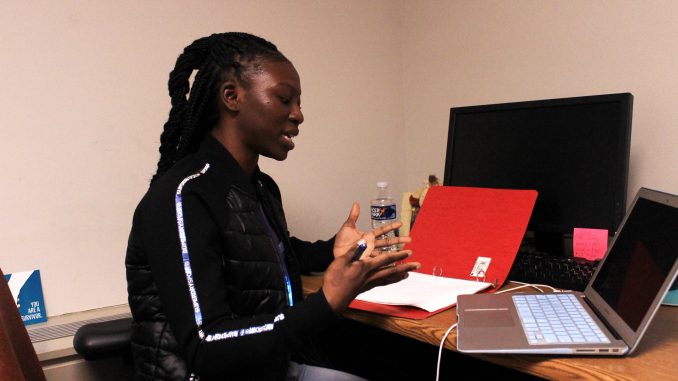
Temple Student Government’s election season is fast approaching, with applications to run for a position in the executive branch or a seat in Parliament due tomorrow.
The Elections Committee has made two changes to the elections code since last year. The first intends to make the election more “inclusive” by lowering campaign spending caps, said Rofiat Oseni, TSG’s chief judge. The second clarifies the consequences for campaigns that violate the election code.
As TSG’s chief judge, Oseni is in charge of managing the Ethics Board and chairing the Constitutionality Council, according to TSG’s constitution.
The Elections Committee lowered spending caps from $1,000 to $500 for the executive teams and from $500 to $300 for Parliament campaigns, Oseni said.
“We want to make sure we get a lot of people running,” Oseni said. “We want to be as inclusive as possible.”
Students who are campaigning raise their own money in accordance with the spending cap and are reimbursed a portion of what they spend, said Woayorm Kumazah, TSG’s elections commissioner. The Elections Committee has not yet decided what proportion of campaign funds TSG will reimburse this year, Kumazah added.
There is a sense that more people will be running in the elections this year, which Oseni attributes to both the decrease in the spending caps and increased outreach by TSG to students informing them of the election process, she said.
“Having the caps be so high made it so that people who weren’t as financially fortunate wouldn’t be able to compete in the election process,” Kumazah said.
Throughout the academic year, the Elections Committee reorganized and rewrote most of the elections code to make it less confusing, Kumazah said.
Last year, TSG’s elections code was vague about which punishments corresponded to different violations of the code, Oseni said. This year, the code defines violations in three different classes, each class with an increasing severity that corresponds with the seriousness of the violation.
Violations, like campaigning before the official start date or failing to appear before the Elections Committee during scheduled meetings would earn a three-day suspension, whereas violations, like exceeding campaign spending limits or breaking the student code of conduct, would disqualify a campaign, according to the code.
Campaigns will kick off on March 16. Here are the other key dates in this year’s elections:
1st Executive Team Debate: March 26
Parliament Debate: March 30
2nd Executive Team Debate: April 6
Voting Days: April 7 and 8



Be the first to comment